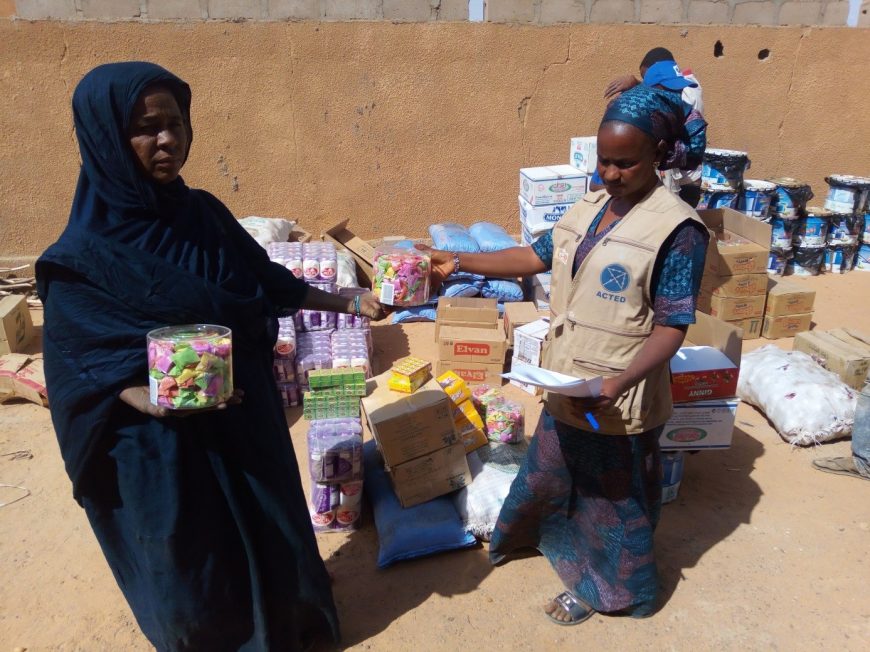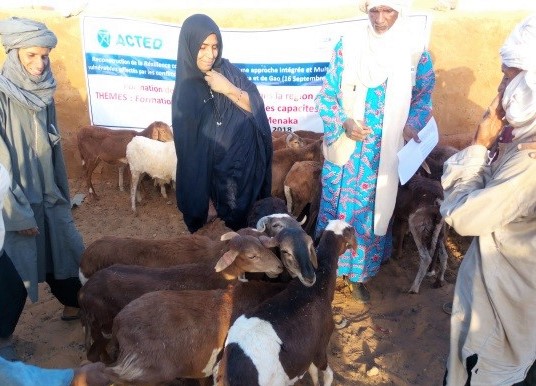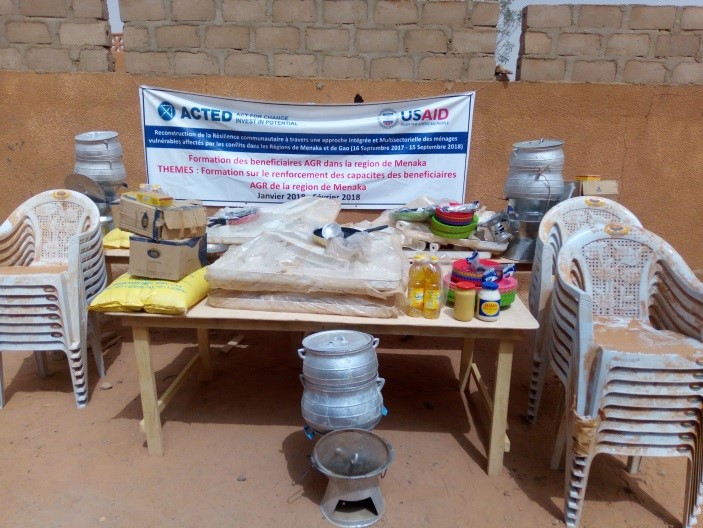Fighting poverty by supporting sustainable income-generating activities in Gao and Menaka
With USAID/OFDA ’s support, ACTED supports vulnerable women on their way to economic recovery and self-sufficiency.
Half of the population still lives below the poverty line
Since the political, economic and humanitarian crisis of 2012, Mali continues to face a number of challenges that hamper recovery. Communities in northern Mali are among the poorest, while half of the overall population still lives below the poverty line, on less than $2 per day.
This especially affects the Menaka region, where the humanitarian and security crisis continues to trigger clashes and displacements. The lack of economic opportunities and rampant insecurity further endanger livelihoods, and increasingly force populations to sell their livestock, their businesses and to switch to cheaper, less nutritious food.
Women-headed households are especially vulnerable to this poverty crisis, and many of them have had to sacrifice their livelihoods in order to survive. To promote food security within these households, ACTED provided food assistance and support for economic recovery and longer-term solutions to break the poverty cycle.
Supporting the creation of sustainable income generating activities
To boost livelihoods, ACTED identified several strategic value chains in local markets and supported 70 women in launching their activity in one of the pre-selected fields of work.
Each of the 70 women received a “start-up kit” adapted to each different sector, including small retail business, livestock, catering, sewing business and dairy products. Some kits included goats to support the reconstitution of herds, or sewing machines to start a business, or a first batch of canned products to sell. The provision of kits was complemented by a two-day theoretical and technical training specific to each sector. Topics covered included longer-term business and marketing skills, as well as innovative production techniques.
This approach will enable beneficiary women to generate income to support their families while also saving money for longer-term investment in the local economy.
Before, I didn’t have enough means to run my small retail business, and to address the daily needs of my three children. Thanks to ACTED and USAID/OFDA’s support, I have been able to develop my business activity, thanks to the items I received, and to increase my income. I can now feed my family, buy them clothes, and even to save money
With support from USAID/OFDA



